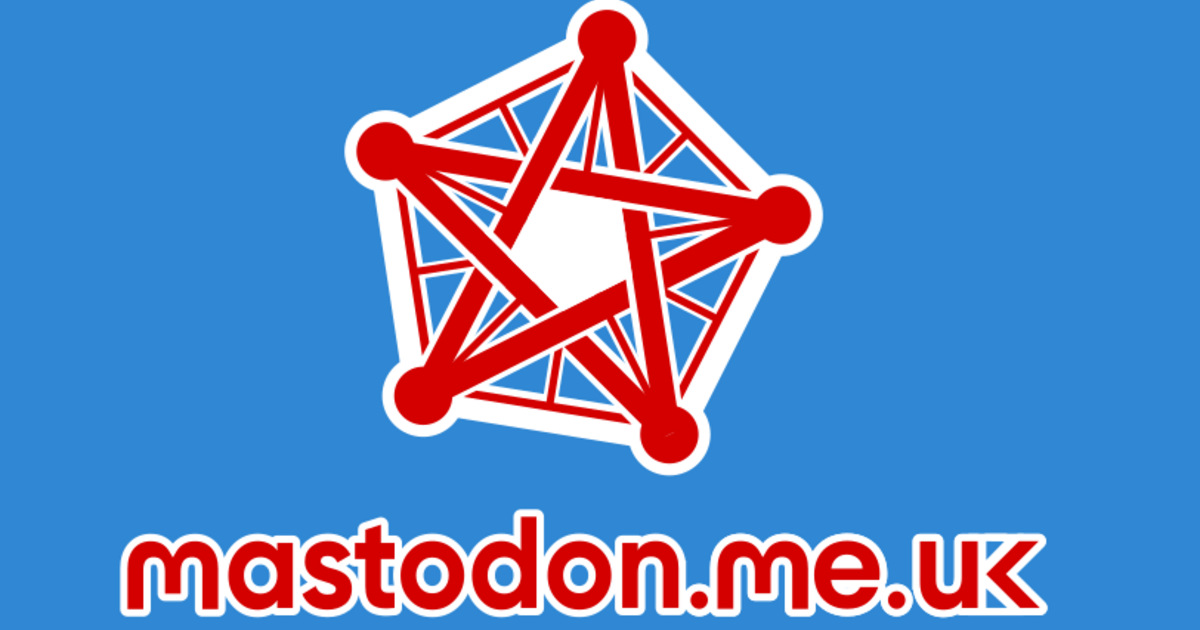https://www.europesays.com/2233820/ CEOs reacting to tariffs with wait-and-see have a dangerous misread of the moment #ArtificialIntelligence #Automation #business #BusinessStrategy #ChiefExecutiveOfficer(CEO) #commentary #Economy #LEADERSHIP #tariffs
#businessstrategy
Part 2 of idk how many topics I'm tackling
#FoodWaste
#EndFoodWaste
#RetailGrocery
#GroceryStore
#Sustainability
#SustainableFood
#CircularEconomy
#FoodSystems
#FoodSecurity
#SupplyChain
#SupplyChainManagement
#BusinessStrategy
#BusinessInnovation
#TeachingAssistant
#ResearchAssistant
#PhDJourney
#PhDLife
#SoonToBePhDStudent
#HigherEducation
If that’s you, I invite you to join us.
Because the future is not a hand-me-down. It’s something we create—together.
Although there's lots of corporate bullshit in what is written in the article linked below (namely, the stuff about self-driving cars), some insights do really standout.
"For leaders steering their organizations through this turbulent transition, what lies beyond the spreadsheet? It’s everything that won’t fit in a cell: the skills that refuse to be tallied, the open-ended problems with no reliable precedent, the intangibles—trust, taste, and the subtle dimensions of quality and experience—and the conviction to press ahead even when every metric says “wait.” Manage only what you can measure, and you surrender the most valuable ground to rivals who cultivate what can’t be counted. Amar Bose, the sound and electrical engineer who founded the Bose Corporation, proved the point: while others worshipped spec-sheet numbers, he zeroed in on how music sounded to people in real rooms—a quality no existing metric could catch—and in doing so, he rewrote the rules of the audio industry.
Directionally, the prescription is simple. Back wildcard bets with fuzzy ROI, reward teams that reframe problems and lean into the unknown, and rotate talent through roles that confront uncertainty across R&D, new markets, and complex customer, partner, and policy interactions. Carve out slack time and engineer cross-team collisions to spark serendipity and idea recombination. Treat those pockets of planned ambiguity not as liabilities, but as strategic assets."
Interested in learning about Enterprise Architecture? You can buy basically a whole library on the topic right now with this 39-ebook bundle: The 'Everything EA' bundle https://leanpub.com/b/ts-everything
https://www.europesays.com/2120512/ Creative strategies for a tariff-tough economy #BusinessAdvice #BusinessStrategy #Economy #PHCPPVF #tariffs
https://www.europesays.com/2084109/ How clean-tech startup Magrathea won a Defense Department grant #business #BusinessStrategy #commentary #Entrepreneurs #Entrepreneurship #Environment #innovation #startups #technology
https://www.europesays.com/2011172/ How To Monetize The Unique Talents That Could Make You Rich #business #BusinessModel #BusinessStrategy #CommunityBuilding #ContentCreation #differentiation #Entrepreneurship #monetization #OnlineCourses #PersonalBrand #UniqueSkills
Apparently a court might make Google sell off their browser, Chrome, as a separate business.
Which would be nice, but I don't get why anyone would buy it? They can't start charging a subscription to run Chrome browser.
Can you really make a business from adverts on the homepage?
A browser is a strict money-loser, with no profit or business model. Ask Mozilla.
If someone bought it, they would surely go bust, then when happens to it?
This week Semios/Almanac laid off an estimated 10% of headcount, including yours truly just today.
It wasn't a surprise, but that doesn't make it suck less.
Which is to say: I'm now 100% available for full time, contract, paid speaking, board, advisory positions. #OpenSource, #BusinessStrategy, #BizOps, #Standards, #Leadership, etc.
https://www.europesays.com/1998804/ Upskilling initiatives key to Australian business success #australia #BusinessStrategy #CollaborativeLearning #productivity #resilience #SkillsShortage(SkillsGap) #Upskilling #WorldEconomicForum
Using Outrage as a Negotiation Tactic – A Smart Move or a Costly Mistake?
In negotiations, offence can be wielded as a weapon—provoking anger or indignation to push an opponent into a corner. From Napoleon's diplomatic barbs to Trump's confrontational style, history is full of figures who have used calculated outrage to gain leverage. But does it really work?
#NegotiationTactics #BusinessStrategy #EmotionalIntelligence #ConflictResolution
https://robert.winter.ink/using-outrage-as-a-negotiation-tactic/
https://www.europesays.com/1913802/ Cutting-Edge Marketing Practices For Spurring International Growth #AIForBusiness #AiMarketing #business #BusinessAdvice #BusinessStrategy #BusinessTips #Data #marketing #MarketingAdvice #MarketingStrategy #MarketingTips
When we started recording podcasts, Sean Martin and I put writing on pause for a bit—but now it’s back, not just in our individual newsletters but also in our event coverage. I enjoy writing, and I plan to do even more with my Musings on Society & #Technology newsletter here on LinkedIn.
That said…
Here’s my final article (#4) from the ITSPmagazine Podcasts coverage of ThreatLocker’s Zero Trust World 2025 (#ZTW25). In this piece, I reflect on the intersection of society, cybersecurity, innovation, and disruption, inspired by the final keynote from Reggie Fils-Aime, former President and COO of #Nintendo.
"The Disruptive Edge: Innovation, #Cybersecurity, and the Future of a #ZeroTrust Society."
Throughout our coverage, we tackled the evolution of cyber threats, the dark web, supply chain security, #cybercriminals tactics, and now, in this final piece, we turn our focus to the bigger picture.
From Reggie Fils-Aime’s insights on disciplined, disruptive innovation to Danny Jenkins’ closing words on embedding security into everything we build, the event left us with one key question: Is innovation moving too fast for security to keep up, or are we finally embedding security at the core of progress?
For centuries, innovation was slow. Then came the Industrial Revolution, and today, we live in an era of hyper-acceleration, where disruption isn’t a choice—it’s a given. #AI, #automation, and cybersecurity threats evolve faster than we can regulate or adapt. But is this pace making us stronger, or is security still an afterthought?
Are we innovating responsibly?
Are we embedding security into progress?
Are we disrupting for the right reasons?
Huge thanks to #ThreatLocker for bringing us together in Orlando for these critical discussions and to the incredible speakers who shaped our coverage.
As Danny Jenkins put it best:
"Security isn’t a feature you add later—it’s the foundation of everything we build."
Check out the full article and join the conversation: https://www.itspmagazine.com/event-coverage-posts/the-disruptive-edge-innovation-cybersecurity-and-the-future-of-a-zero-trust-society
Here is all (A LOT) our content from the event:
https://www.itspmagazine.com/zero-trust-world-2025-cybersecurity-and-zero-trust-event-coverage-orlando-florida
Enjoy, comment, and share!
David Coovert
As these individuals ascend into leadership roles, traditional metrics of success—like physical office attendance—are likely to become obsolete.
#RemoteWork #WorkFromHome #RemoteWorking #DigitalNomad #WFH #Entrepreneur #LocationIndependent #HomeOffice #Productivity #FutureOfWork #WorkLifeBalance #CorporateCulture #MillennialLeadership #BusinessStrategy #RTO… (8/9)
The generational shift in workplace expectations is also notable. Millennials and younger professionals prioritize productivity over presenteeism, valuing results rather than time spent at a desk.
#RemoteWork #WorkFromHome #RemoteWorking #DigitalNomad #WFH #Entrepreneur #LocationIndependent #HomeOffice #Productivity #FutureOfWork #WorkLifeBalance #CorporateCulture #MillennialLeadership #BusinessStrategy #RTO… (7/9)
Shareholders may soon recognize that clinging to outdated practices risks alienating a workforce that has proven remote work can be both efficient and profitable.
#RemoteWork #WorkFromHome #RemoteWorking #DigitalNomad #WFH #Entrepreneur #LocationIndependent #HomeOffice #Productivity #FutureOfWork #WorkLifeBalance #CorporateCulture #MillennialLeadership #BusinessStrategy #RTO (9/9)
Additionally, corporate investments in office infrastructure require justification, as empty buildings represent wasted resources.
#RemoteWork #WorkFromHome #RemoteWorking #DigitalNomad #WFH #Entrepreneur #LocationIndependent #HomeOffice #Productivity #FutureOfWork #WorkLifeBalance #CorporateCulture #MillennialLeadership #BusinessStrategy #RTO… (6/9)
Claims of fostering “culture” or “leading from the front” appear disingenuous when many executives themselves leveraged remote work without issue during the pandemic.
#RemoteWork #WorkFromHome #RemoteWorking #DigitalNomad #WFH #Entrepreneur #LocationIndependent #HomeOffice #Productivity #FutureOfWork #WorkLifeBalance #CorporateCulture #MillennialLeadership #BusinessStrategy #RTO… (3/9)
A more plausible explanation lies in financial incentives tied to office occupancy. Many companies benefit from tax breaks or subsidies linked to maintaining high occupancy rates in commercial buildings, which would otherwise lose value if left underutilized.
#RemoteWork #WorkFromHome #RemoteWorking #DigitalNomad #WFH #Entrepreneur #LocationIndependent #HomeOffice #Productivity #FutureOfWork #WorkLifeBalance #CorporateCulture #MillennialLeadership #BusinessStrategy #RTO… (5/9)



